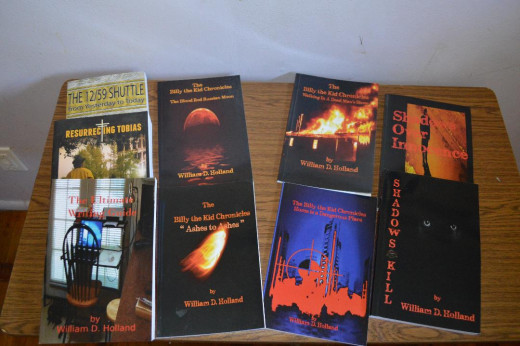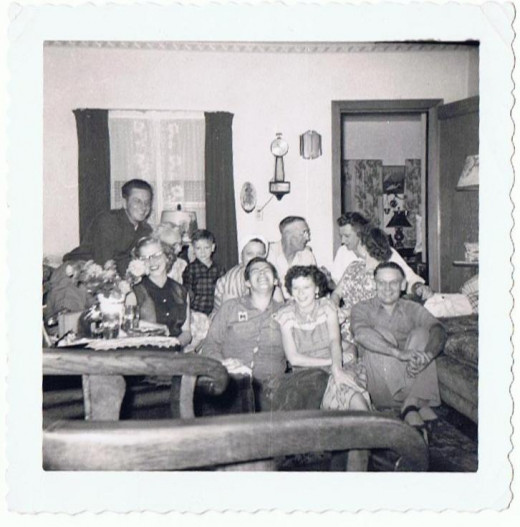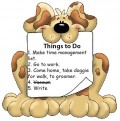The Writer's Mailbag: Installment #308
How You All Doing?
Hanging in there? Following the rules? Staying healthy and safe?
Weird times for sure, but I’m a closet optimist and I’m feeling pretty good about humanity in general, so hang tough and look for the silver lining in all of those clouds.
Changing times, all around us, up is down and down is up, but one thing that remains constant is the Mailbag, and it’s waiting for us at this very moment.
Let’s do this thing!

Pulitzer Prize
From Manatita: “How are books chosen for the Putlitzer Prize?”
Darned if I know, Manatita. In fact, I can’t take credit for this answer, because Manatita looked it up himself and sent it to me. From the Pulitzer website:
“To have a book considered for a Pulitzer Prize, you have to fill out an application, pay an entry fee of around $50 and send four copies of the book to the committee overseeing the awards. The author can send it. The publisher can send it. A fan can send it. Anyone can nominate a book to be a winner of the Pulitzer Prize in Fiction.”
So there you go!
For some reason I really like the fact that anyone can enter any book for consideration by the committee. On the other hand, again for a reason I cannot articulate, it cheapens the process a bit, at least in my mind.
I’ll have to think about that some more. What do all of you think about it?
Attacking a To-Do List
From Brenda: “I would love to know your strategies for balancing out your to-do list. It seems like lately I have put too much on my plate and do not have enough hours in the day to possibly tackle everything.
“A lot of writing, reading, groups, posting, activities waiting for me to complete without even giving thought to my own free time. Any ideas?”
Brenda, this is a pretty common malady. If I had to make a list of the Top Five Complaints of people I am in contact with, not having enough time would be near the top. But in my mind it’s not a matter of a lack of time; instead, it’s a matter of not prioritizing what needs to be done and standing firm with those priorities.
I have an advantage over you, Brenda, in that I’m naturally anal. LOL I’m the human equivalent of a dog with a bone. I don’t let go of that bone until all the marrow has been sucked out of it in the time allotted. Once that has been accomplished, I move on to the next bone. But it is all done within the framework of a daily schedule.
The other arrow in my quiver is this: I schedule the hours in my days and I don’t deviate from that schedule. 6:30 a.m. to 10:30 a.m., writing. 10:30 to 12:00 dishes, sweeping, and lunch. And so on until my day and schedule is completed. If I don’t accomplish a given task in the time I have allotted for it, I finish it the next day during its allotted time. The task does not guide me through a day; the schedule does that! I have found this to be the most efficient use of my time.
I’m not saying it would work for everyone, but it works for me. I have a pretty good track record for getting things done.
I wish I could guarantee that this will work for you, but I can’t. But you might give it a try.

Feeling Predictable
From Joel: “Lately the novel I’m working on seems predictable. Or maybe dull. I’m not sure what it is, but I know I don’t like it. Any thoughts?”
Sheez, Joel, that’s like Mission Impossible. Without actually reading your work, it’s real hard for me to give my thoughts. That’s not going to stop me, of course.
Here’s the thing about novels: they are all about friction. There is almost always conflict in a novel. If your novel feels bland and predictable, my first guess is it needs more conflict. I read once that a good novel has something unexpected in every chapter, and it is that “unexpected” event which keeps readers glued to their seats and eager for the next page.
Try spicing yours up with a little more conflict. Your readers will appreciate it.
Characters Sound the Same
From Theresa: “I finished the first draft of a mystery I’m writing, and I’m not happy at all with the dialogue. The characters all sound the same to me. They sound like me.. What should I do to change that problem?”
It’s a pretty common problem, Theresa. Most fiction writers stumble on dialogue the first few times. What should you do? Go out in public and listen to people talk. Record them if you have to, or take notes. There was a character on the television series “Longmire” who never used contractions. That might not seem like much, but it was very noticeable since most people do use them. I hadn’t thought of that until I was listening to a contestant on “The Voice” the other night, and she didn’t use them either. It’s a little thing, really, but it makes a large difference in dialogue.
You could have one character always speak in short, chopped sentences, while one speaks in a flowery style. One could talk like a Valley girl while another speaks like a college professor. And in so doing you will be mirroring real life, because that’s what you’ll hear if you go out and listen.
Really good writing takes an attention to the little details like that.

Early Character Development
From Zulma: “I read recently that in order to have an engaging protagonist they should have some agency. They should act rather than be acted upon in order to move the plot forward. However, what if the protag comes from a background where they were not encouraged to act or take control of a situation. They were expected to do as they were told without question by parents, teachers, employers, even friends. Later on in the story, as part of their character arc, a life-changing event occurs that forces them to think and act for themselves.
“So, how do you create a character that readers will become invested in until that cataclysmic event happens?”
It’s a fascinating question, Zulma. It really is, and it presents a rather formidable problem in my opinion. You have described a situation which will separate the outstanding writers from the mediocre writers.
I would approach it through character development plus foreshadowing. I think it would be possible to unfold a character’s “average” life in such a way, dropping “sinister” hints along the way, so that readers notice that the idyllic life will not last for long. Actually, Harper Lee did this in “To Kill A Mockingbird.” Her opening chapters are really about little kids living in a dusty southern town. Not much is happening, but there is a curtain of “sinister” hanging over them without Lee actually describing the origin of that sinister thing. Does that make sense?
Anyway, it’s an interesting challenge for writers to undertake, should they have a hankering to improve their writing.
Go Back and Review
From Eric: “Now how often do you go back and review your work from over five years ago and why or why not?”
Eric, I hate to admit this, but I don’t go back and review. I guess the main reason is I just don’t have time to do it. I’m too busy writing for today, you know? Every once in a great while someone will comment on an old article of mine, and then I’ll re-read that article so I know what they are commenting about, but that’s it for me.
I probably should. It might be a dandy way to see growth and/or learn, but so far I just haven’t done it.
Pen Names
From Lawrence: “But here’s a question for you, I've already started my next project, it’s a story I've wanted to write ever since I uncovered a few things researching family history, but it's a totally different genre to what I i normally write! I'm going to go with a pen name similar to my own, but would that be confusing? Should I use a totally different name? This book will be in the Historical fiction romance genre set in WW1.”
Interesting question, Lawrence. I don’t really have anything against pen names. There are valid reasons for using one, although you didn’t reveal why you want to do it. The danger with using a pen name similar to yours is confusion. The other problem with a pen name, as you well know, is the fact that you have already built your platform for your real name. Using a pen name loses all of that previous goodwill and name recognition.
Still, a lot of very good writers have used pen names, and I think the pros far outweigh the cons when doing it. I would, however, think twice about using one which is similar to your own. That’s a sticky wicket if you ask me . . . which you did!
A Completely Unrelated Matter
There’s been news in the U.S. lately that the postal service might be in trouble. The President calls it a joke and wants to overhaul the whole system, or do away with it completely. I would really hate to see that. The Post Office is an American tradition I’m not willing to give up. For many small communities, the Post Office is the only connection between citizens and the government. It has successfully delivered mail to every single household in the United States for over two-hundred years, and that kind of remarkable track record deserves our support and not our derision.
Why am I mentioning that? I guess nostalgia has something to do with it, but in my mind it’s like saying no more bookstores or no more libraries. There are some things which may be outdated but are essential to the fiber of any society. Just because you can do something doesn’t mean you should.
Besides, it’s in the Constitution, and if the Constitution is good enough for gun rights advocates, then it’s good enough for Post Office advocates.
Just random thoughts. Pay no attention to me.
Need a writing coach? Email me at holland1145@yahoo.com and we’ll team up to make you a better writer.
Have a brilliantly creative week, be safe, and do all things with love.
2020 William D. Holland (aka billybuc)
“Helping writers to spread their wings and fly.”








